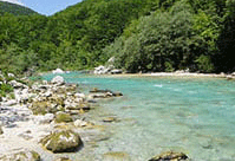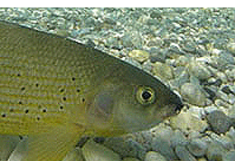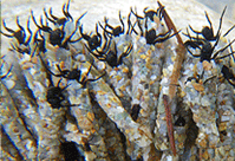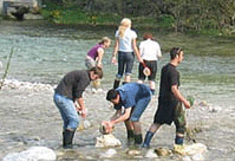Master's Programme "Applied Limnology"
ID of study programme: H 066 448
ISCED-Code: 851 (Environmental protection services)
Why Applied Limnology?
Water is life! Humans depend on ecological services provided by aquatic ecosystems, which are among the most threatened in the world. Human activities have led to serious degradation of rivers, groundwaters and lakes. Fundamental understanding of ecosystem functions and processes is essential to stop degradation, mitigate impacts and restore freshwater ecosystems.
Social needs
Society recognises the importance of aquatic ecosystems. Ecologically orientated laws apply to all of Europe as a result of European Union directives. The “Water Framework Directive” targets “good ecological status” for water bodies. The “Habitats and Birds Directive” strives for the protection and recovery of endangered habitats and species. International conventions such as the UN Convention on Biodiversity impose a more sustainable management of aquatic resources. Well-educated experts are required to properly implement these directives and agreements.
Scientific approach
The uncertainty from global sources of change challenges us to develop and apply science at unprecedented levels of complexity. Holistic perceptions of ecosystem functions and processes, i.e. hydromorphologic dynamics, nutrient cycling, matter fluxes, food webs, habitat requirements, and biotic interactions, are necessary to cope with challenges in management of complex systems. Coupling the chemical/physical characteristics of freshwaters with biological requirements of organisms provides an integrative understanding of ecological interrelations. Identification of organisms such as algae, floodplain vegetation, benthic invertebrates and fishes, in addition to understanding their anatomy, ecophysiology and habitat requirements is essential for evaluating their indicative value for ecosystem functioning and integrity.
Innovative applications
Professional skills are needed to understand and apply innovative methods, models and tools. Expertise in monitoring of aquatic organisms, assessment of human impacts and ecological status, protection and conservation of endangered species and habitats, identification of appropriate restoration measures, and validation of management actions is required for modern river basin management.
Well-educated experts are needed to support society in maintaining and restoring ecological services of freshwater ecosystems!
Last but not least: Career prospects
Graduates of the International Masters Programme in ‘Applied Limnology’ are specialised in sustainable management of aquatic ecosystems and trained to integrate the technical, ecological, economic, social and cultural aspects of their fields of work. Graduates of this programme can make substantial contributions in the following fields of work: private, governmental and non-governmental organisations, especially international organizations such as the European Commission, UNESCO, FAO, International River Commissions, technical and administrative planning institutions and companies, development cooperation agencies, non-profit organisations, national and international environmental associations, civil engineering, consultants as well as research and education.
Contents and Course Structure
Students are educated within an interdisciplinary framework of literature review, lectures and field work guided by biologists, ecologists, landscape planners, river engineers, modellers, systems analysts, statisticians, GIS-experts, water managers, lawyers, and historians.
The 2 years master programme consists of 5 mandatory (1st semester) and 13 elective modules (2nd, 3rd semester) as well as a Master thesis (4th semester).
A total of 120 ECTS will be divided to:
- Mandatory courses (39 ECTS)
- Master thesis (30 ECTS)
- Elective courses (36 ECTS)
- Free electives (15 ECTS)
Modules/courses at Egerton University, Kenya (2nd semester) can be also selected as elective courses.









